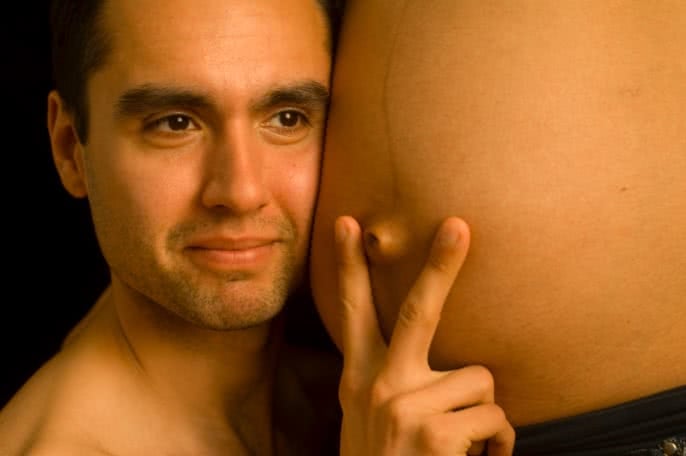When I recently joined my wife for a GP’s check-up to see how our 3rd spawn was progressing, I overheard some nurses saying that she was a “geriatric pregnancy.” My heart went out to her… as if being pregnant wasn’t hard enough on her body already.
After a little research, I discovered that if an expecting mum is over 35, she’s officially over-the-hill; or to be politically correct, she’s reached “advanced maternal age.” I told her that by putting it in that context, it made her seem smarter – like she’s an advanced form of her gender. And that it was also really smart that “we” forgot what time of the month it was when we magically conceived this third mouth to feed.
She didn’t talk to me for a while after that.
On a positive note, my wife’s not alone. More than one in five women giving birth in Australia are now aged 35 or over, the latest official figures show.
In fact, National Vital Statistics Reports tells us that birth rates for women in their 20s declined in 2015 and increased for women age 30 – 44, to an all-time high since the dawn of the baby boom era. In other words, women are delaying pregnancy in order to attain other things first, including higher education, more rewarding careers and meeting Mr. Right. Ok, I added that last one. But this is a dad’s site, so I had to bring it back around to us.
We’re not getting any younger. And neither is our sperm.

Since men don’t hit menopause (thank you, God), we can typically continue to be boy wonders and father children well into our 60s and 70s. Heck, Mick Jagger just had his eighth child at the age of 73. His stones are still rolling strong, so to speak. And like Mick, more and more men are choosing to sire young later and later in life.
Unfortunately, the older you are, the more defective your sperm can be. And it could contain DNA mutations that are linked to more complex genetic conditions, such as asthma in the offspring.
Sperm also have the dubious honour of being the only human cell that functions outside of the body. And in their arduous journey to reach the almighty egg, they encounter many factors that can cause DNA damage. Poor little guys.

It’s not a walk in the park for the female egg, either. For women, the chromosomes become sticky and don’t divide properly, leading to conditions like Down Syndrome. This is because women are born with all of the eggs they will ever have. So, the longer they hang around inside the ovary, waiting to be released and fertilized, the more they age. And unless you enjoy sleeping in the spare room with your needy cat, handle “the old egg conversation” delicately with your life partner, with respect and empathy.
Now, we all know that eggs can be frozen, but what about sperm? I asked my exceptionally brainy friend, the fabulous Dr. Samantha Young, who has a B. Sci. (Hons), PhD in Reproductive Biology, what we could do to preserve our proverbial posterity. Thankfully, she had an encouraging answer: “Currently you can freeze sperm, and in fact it is much easier and more established a process than freezing eggs. Every ejaculation (usually) results in millions of sperm, so if you lose a few through the freezing process, no big deal. We can also easily test which sperm are ‘good’ and select those individually for fertilization.”
What choices does that leave for advanced paternal and maternal-aged couples?

Concerned couples can go the in vitro fertilisation (IVF) route, and use a technique called preimplantation genetic diagnosis, which tests each embryo for genetic diseases before it’s implanted into the woman’s womb. Needless to say, it’s a very romantic notion.
And if you’re older and want to father children, you can talk with a genetic counselor specifically trained in reproductive issues if you are worried about anything in particular – like the prospect of changing dirty nappies at the ripe age of 50.
Man, I can’t wait for that.


































